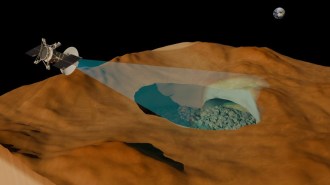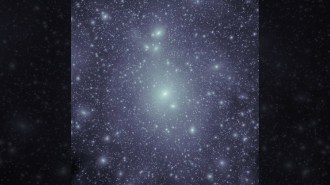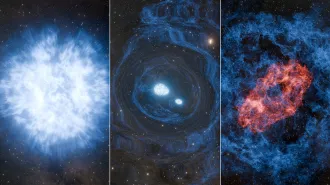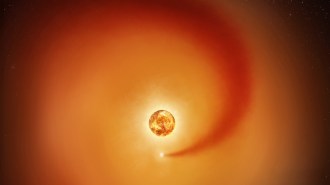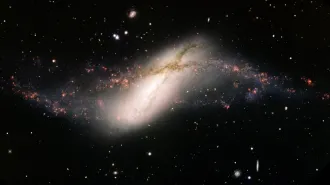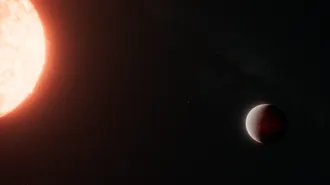Exoplanet spin measured for first time
Eight-hour day on Beta Pictoris b is shorter than day of any planet in our solar system
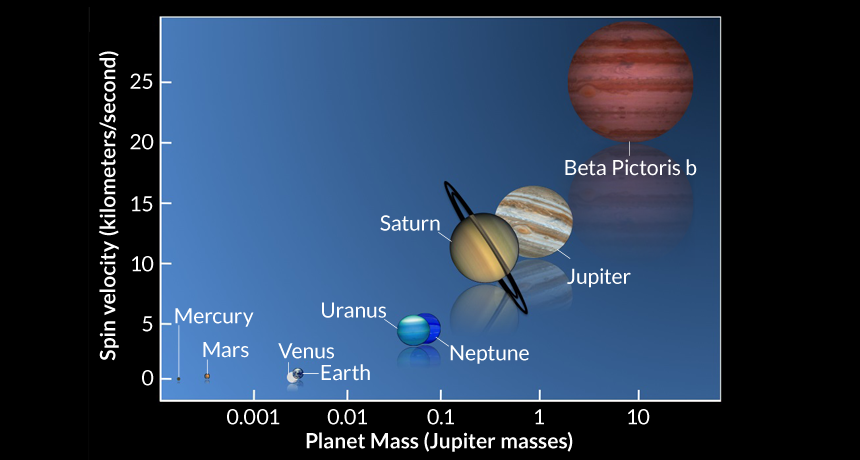
AS THE WORLD TURNS On Beta Pictoris b (upper right, in an artist’s illustration), a day is just over eight hours long. The exoplanet spins almost twice as fast as Jupiter does (when measured at the equator). The exoplanet’s spin continues a trend seen in our solar system: More massive planets spin faster.
I. Snellen/Leiden Observatory, adapted by S. Egts
